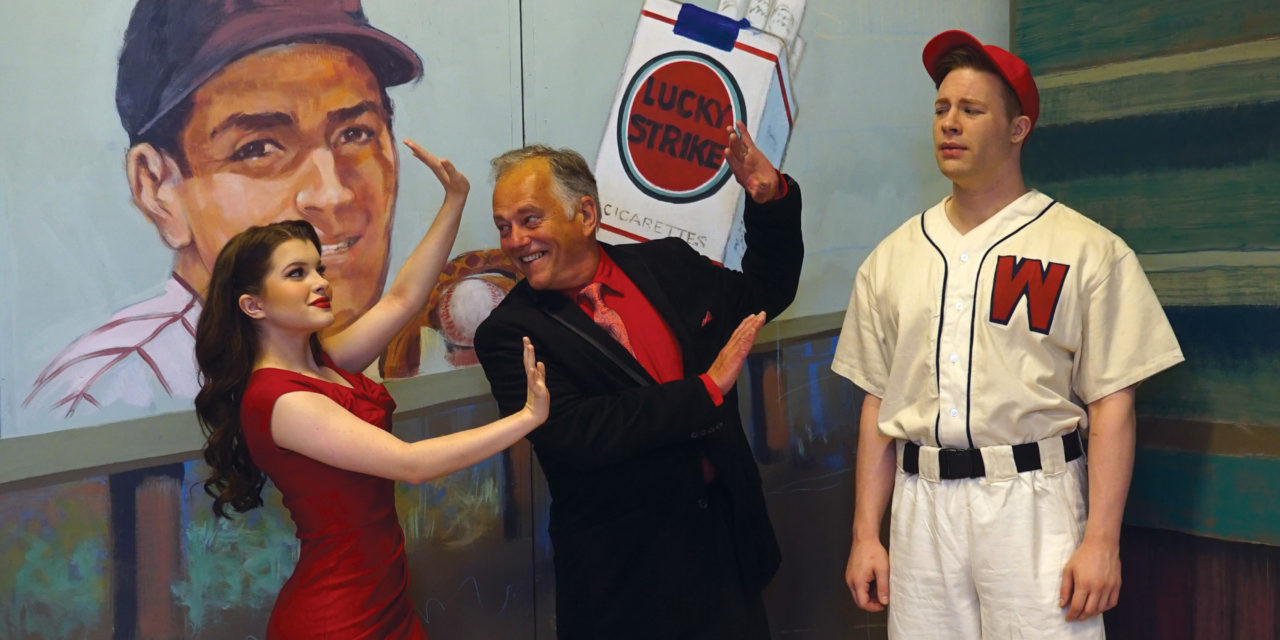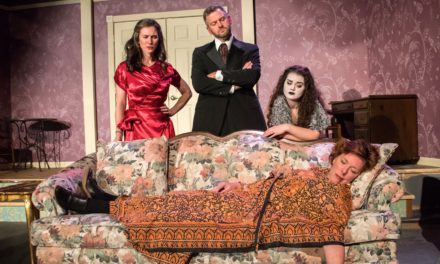By Randi Bjornstad
Given his position as executive director of The Shedd Institute for the Arts — and a premier preserver and fan of the Great American Songbook — it seems appropriate to sum up Jim Ralph’s response to the effects of the current viral pandemic on his corner of the arts world with the refrain of a classic song from that mystical volume:
You’ve got to accentuate the positive,
Eliminate the negative,
And latch on to the affirmative —
Don’t mess with Mister In-Between.
You’ve got to spread joy up to the maximum,
Bring gloom down to the minimum,
Have faith or pandemonium’s
Liable to walk upon the scene.
Sometimes written as Ac-Cent-Tchu-Ate the Positive, the song has been around since 1944 — ironically back then during a military rather than today’s medical war zone — created by the film musical writing team of Johnny Mercer and Harold Arlen.
Many versions of the song are available for listening on various internet music sites, not only Mercer’s original rendition but also interpreted by artists as varied as Ella Fitzgerald, Bing Crosby and Bette Middler, Sam Cooke, and Paul McCartney, among them:
- Johnny Mercer — https://www.youtube.com/watch?v=f3jdbFOidds
- Ella Fitzgerald — https://www.youtube.com/watch?v=V_JxgAU84-k
- Paul McCartney — https://www.youtube.com/watch?v=hYo2LrnCOAM
In a recent interview (by telephone, not in person as befits the current situation), Ralph paralleled the song’s theme in his evaluation of the effects of the pandemic on The Shedd’s operations and future.
“It’s complicated,” he said of the sudden turn of fortune occasioned by Covid-19. “Income just went away in terms of all the concert performances that had to be cancelled. But we are fortunate that many people want to re-ticket when those shows are rescheduled.”
Besides losing ticket revenue from dozens of shows — and no idea yet when concerts might resume — The Shedd also has lost the substantial tuition income from the many classes it offers for vocal, instrument, and dance students.
“Altogether, this situation has been pretty devastating,” Ralph admitted. “Everything was fine through February — that was even better than February last year — but since the shutdown, March and April have been just a fraction of what they were a year ago.”
On the brighter side, many who teach through The Shedd, like their public school counterparts, have turned to online classes, starting with four at the beginning of the shutdown and up to 17 now, he said.
“We were at the level of 300 classes a week before, and right now we’re back to about 62. But we’re working on it — we’re working on it every day, because we are dedicated to the community and helping our students of all ages.”
In addition to concerts and classes, The Shedd also rented out its facilities for a variety of events and conferences, and those also have been cancelled or postponed indefinitely, Ralph said.
“The McKenzie River Trust had a sold-out event planned, and of course that’s not happening for now,” he said. “We often rent out our facilities to nonprofits, and we hold a lot of memorials here, and all that also is shut down, and of course we don’t know for how long.”
Also affected by the fallout from the pandemic, The Shedd has had to curtail its in-progress remodeling project.
“We were smack dab at the end of this $4.2 million phase, and we had all the pledges and lined up, and suddenly everything is stopped,” Ralph said. “The stock market dumped, and the insecurity of all that obviously affects the timing of our being able to complete the renovation. It’s tough on everyone — on the contractors, on our donors, on us.”
Even so, The Shedd continues to hold the hope that the situation will improve, slowly and steadily. The organization initially had to furlough many of its employees, but it gradually is bringing people back to work, he said, while observing the prevailing practices such as 6-foot “social distancing.”
“At this point, we have people working every day, and we’re not automatically cancelling our entire season,” Ralph said. “Right now, we’ve shut down through May, but we still have events — our musical, Pajama Game, and the Oregon Festival of American Music — on the summer calendar.”
Although he’s hopeful that The Shedd may be able to reopen by July, “If we have to move dates further out, we will — we will play it as it lays.”
In the meantime, planning is still in the works for shows through the last months of the years and into 2021.
“It’s hard for the artists, not knowing what they can count on committing to, and it’s hard for us not to have a concrete idea of what is going to happen,” Ralph said. “We usually have a much greater sense of self-determination than what we are experiencing now. But we wake up every morning, and we keep going.”
Even in the chaos, there have been some humorous moments, he said.
“We’ve been working with this New York jazz musician, Wayne Horvitz, for 15 or 20 years, and he was supposed to be here April 22 as part of a tour, but of course that got cancelled. So now he’s working with all the venues to rebook, and he said it’s the easiest tour he’s ever arranged.”
Ralph sees The Shedd’s nonprofit status through the current uncertainty as one of its saving graces.
“When I look at our nonprofit mission and goals, I see how lucky we are that we provide services which the community values and wants to continue, and which people are willing to support so they will be there in the future,” he said. “We know this is a tough time for everyone, but we are hoping for the best — we keep on looking for opportunities, and we are trying to staying nimble in this situation.”
On a positive note, he said, “We will make it through.”
Information: 541-434-7000 or theshedd.org

An architectural rendering envisioned the new look of the Jaqua Concert Hall at The Shedd Institute before its recent renovation. A later phase of the project, adjacent to the main concert hall, has been curtailed by the Covid-19 pandemic.











